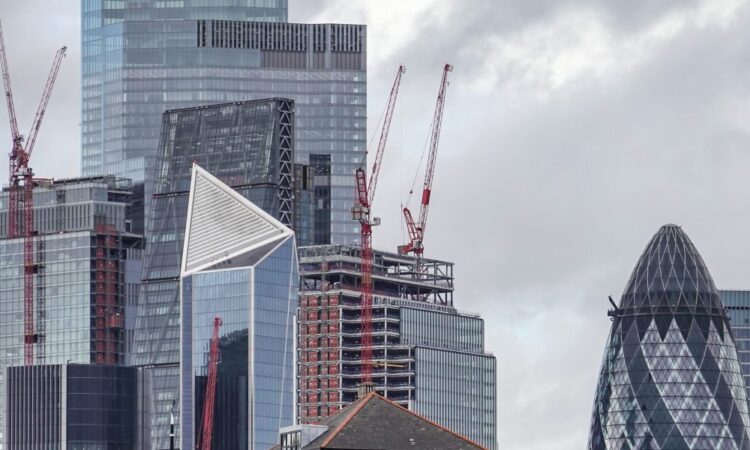
The U.K. economy has endured a lot of name-calling in the last decade, weighed down by jibes over Brexit, slow economic growth, and stagnant productivity levels.
Now, one of the U.K.’s largest infrastructure investors has weighed in with fresh accusations, blaming the U.K.’s stunted planning process for keeping hundreds of billions of dollars away from regeneration projects.
In a report published Tuesday, the Pension Insurance Corporation’s CFO Dominic Veney said the pension risk transfer market had £200 billion ($254 billion) to invest in “viable projects” over the next decade, but that capital was failing to be put to use.
‘Bananas’ policy
“Why are so few of these projects getting off the ground? Partly we see this as being related to the UK’s status as a Banana economy,” in other words, “Build absolutely nothing anywhere near anything (or anybody).”
While it’s a catchy acronym, the comment can also be aligned with the phrase “banana republic,” or a country that is dependent on the export of one product or commodity, leaving it under the thumb of foreign corporations in that industry.
“We see no shortage of domestic capital to support viable projects. There just aren’t enough viable projects to invest in.”
Many projects in the U.K. are approved at a local level, meaning they have to go through several stakeholder consultations that can often dilute or even destroy the plans.
Even Hollywood star Ryan Reynolds has vented his frustration with the U.K.’s bureaucratic planning system.
The Wrexham co-owner bemoaned his and fellow owner Rob McElhenney’s attempts to expand the soccer club’s racecourse ground, which had formed a comedic plot point in their documentary series Wrexham Til I Die.
“In Wales, it really is a lot of red tape, and it’s just sort of figuring out ways to tick all those boxes and make sure that every single bureaucrat is happy,” Reynolds told Collider.
Hayley Rees, PIC Capital’s managing director, said more work needed to be done in convincing local authorities of the “social value” that can come from regenerating spaces like “disused docks, abandoned factories and obsolete office blocks.”
This social value can be measured through job creation, skills development, improved health outcomes, or the harder-to-measure “cohesive social fabric.”
PIC’s report forms the latest challenge to the U.K.’s ability to compete on a world stage in the last week.
Jim Ratcliffe, the British Billionaire founder of petrochemical giant INEOS and minority owner of Manchester United, last week said the U.K. chemicals industry was “finished” as he urged more North Sea oil drilling.






